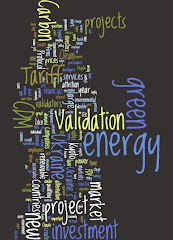According to a recent Reuters news article below (available at http://www.reuters.com/article/idUSTRE65S3RU20100629), the official announcement happened yesterday.
Bulgaria had been under fire for faulty greenhouse gas accounting and reporting according to United Nations and EU standards. Basically, the figures used by the Bulgarian government have been considered less than credible -- thereby undermining the validity of their carbon trading activity. So they are being suspended until such time that they clean up their act.
Given the large amount of money Bulgaria stands to lose if they don't get into compliance during the coming months, it is highly probable that they will fix the problems before the end of this year. But only time will tell -- until then we will just have to wait and see.
Bulgaria suspended from U.N. Kyoto carbon trade
SOFIA (Reuters) - Bulgaria has been suspended from United Nations carbon trading for violating greenhouse reporting rules set under the Kyoto Protocol, a key tool to fight climate change, the Bulgarian environment ministry said on Tuesday.Sofia has been expecting the move since the middle of May, when the Bonn-based U.N. Climate Change Secretariat that oversees compliance of U.N.'s Kyoto Protocol warned the Balkan country its accreditation will be revoked.
The ministry said it has already taken measures to improve emission registering and expects a visit by U.N. experts in September and October to allow the Balkan country restore its accreditation before the end of the year.
The suspension will exclude Bulgarian companies from trading in greenhouse gas trading schemes under Kyoto, and would also affect their participation in the European Union's emissions trading scheme.
Industrial producers and utilities can carry out deals in the EU's carbon scheme, but the actual transfer of allowances to and from the national register would not be possible and would hamper spot trading.
Spot EU permit trading and Bulgaria's share of permits both account for a small portion to the total EU carbon market.
The suspension also means Bulgaria cannot sell the surplus sovereign emissions rights it has accumulated under Kyoto. The recession-hit country had hoped to sell at least 40 million metric tons of its Assigned Amount Units this year, worth upwards of 400 million euros ($488.2 million).
Greece received a similar suspension for seven months in 2008, but Greek companies were able to continue trading in the EU market as it was not yet linked to the Kyoto schemes.
(Reporting by Tsvetelia Tsolova)


